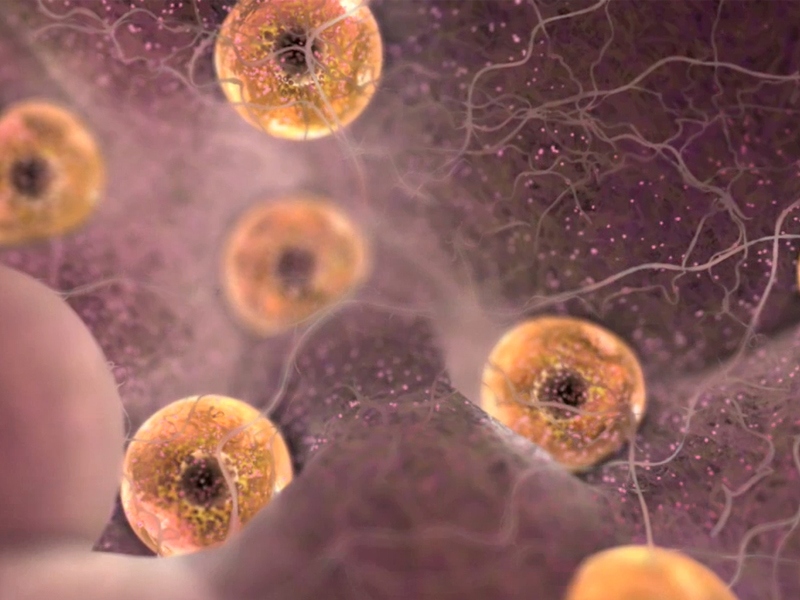Anti-Mullerian Hormone and IVF

The female reproductive system is highly dependent on hormonal activity in her body. Basically, it is enough to pass a few blood tests and conclusions about the female reproductive system can be made. One of the most important hormones that can tell about the chance of getting pregnant is Anti-Mullerian hormone. It is called the litmus test of a woman’s reproductive health. Let’s take a look at why it is so important, its rate in the body, and whether it is possible to get pregnant with a low amount of this hormone.
What is Anti-Mullerian hormone?
Anti-Mullerian hormone (AMH) is a protein found in the female and male body. It belongs to transformative growth factors. Plays a very important role in the embryonic period, when the reproductive organs of both sexes develop. He is responsible for the differentiation of the male and female fetuses. In the female body throughout life, the level of AMH rises during the maturation of ovarian follicles and is considered the most accurate for determining a woman’s reproductive function. By its level in the body, it is possible to say with maximum certainty how many eggs are potentially capable of fertilization.
In what cases is it advisable to take an AMH test?
There are various diseases, and conditions in which the doctor prescribes to be tested for AMH.
Here are the most common ones:
- Suspicion of premature or delayed puberty
- Infertile marriage
- Establishing the fact of complete menopause
- Suspected polycystic ovary syndrome
- Monitoring women with cancer
- Assessment of the woman’s reproductive system
- The determined reasons for unsuccessful IVF attempts
What are the normal results of AMH?
Throughout a woman’s life, the level of AMH changes. First of all, you need to remember that they take it from the third to the fifth day of the menstrual cycle and strictly on an empty stomach.
In accordance with age, the amount of AMH in a woman’s body is equal to:
- up to 8 weeks – <0.02-0.49 ng / ml
- up to 10 years – 0.05-10.4 ng / ml
- from 11 to 20 years old – 0.62-11.0 ng / ml
- from 21 to 30 years old – 0.02-10.39 ng / ml
- from 31 to 40 years old – 0.14-10.4 ng / ml
- from 41 to 50 years old – 0.02-6.35 ng / ml
- over 51 years old – 0.02-0.39 ng / ml
But remember that only a doctor can accurately decipher the analysis and describe the condition of a woman. It is he who then determines the tactics of treatment.
What are the reasons for the low level of AMH?
Depending on the woman’s age and complaints, the reasons may be different. And they need to be considered in conjunction with other symptoms and test results. It is also worthwhile to calculate the day of the hormone test, because the AMH level changes throughout the menstrual cycle, albeit slightly, but this can affect the final result.
The most common reasons for a decrease of AMH:
- Menopause. Its onset may be according to age and is considered normal or premature.
- Decreased reproductive reserve. A small number of eggs ready for fertilization.
- Delayed sexual growth. When determined in childhood and adolescence.
- Anovulatory cycles. A cycle in which ovulation did not take place.
- Endocrine infertility. In combination with a violation of the production of other hormones.
- Ovarian wasting syndrome. Bad habits, a large number of earlier pregnancies.
- Polycystic ovary syndrome. With the formation of syndrome, their function decreases with this and the level of AMH.
- Reproductive system neoplasm.
Is IVF possible with low AMH levels?
A low level of anti-Müllerian hormone is a direct indication for the use of an assisted reproductive technology – in vitro fertilization. Since AMH directly affects the development of follicles, therefore, its sharp decrease excludes natural fertilization. A healthy egg does not leave the ovary. Unfortunately, it is impossible to raise the AMGH evel just like that. Therefore, the doctor recommends IVF with ovarian stimulation.
During this procedure, medication, hormonal stimulation is carried out, which allows healthy eggs to be formed and punctured in the future.
To do this, you need to carefully select the stimulation protocol, usually a long protocol with low doses of hormones is chosen. This is done to avoid abrupt ovarian hyperstimulation. Also, an additional ICSI protocol is often used rather than simple in vitro fertilization.
But sometimes it happens that even after stimulating the ovaries, it is not possible to get a positive result – it is impossible to get an egg. In this case, the doctor recommends using in vitro fertilization with donor oocytes. The chances of getting pregnant and carrying a baby are much higher.
After each IVF attempt, the doctor will again prescribe an analysis to determine AMH, in order to monitor the performance of the ovaries and correct the next attempt if the previous one failed.
Remember that all indicators and situations are strictly individual. The doctor selects the protocol and method of treatment in each individual case, based on the test results and the general condition of the woman’s body. In order to find out about the state of your eggs, take the AMH test now and get professional advice.


